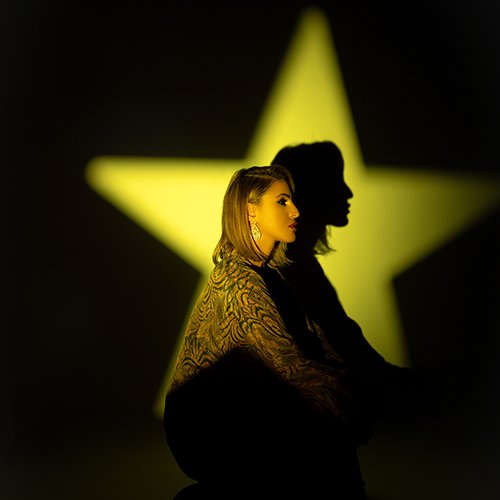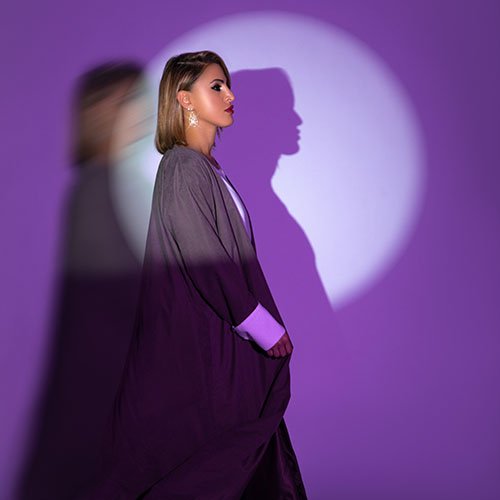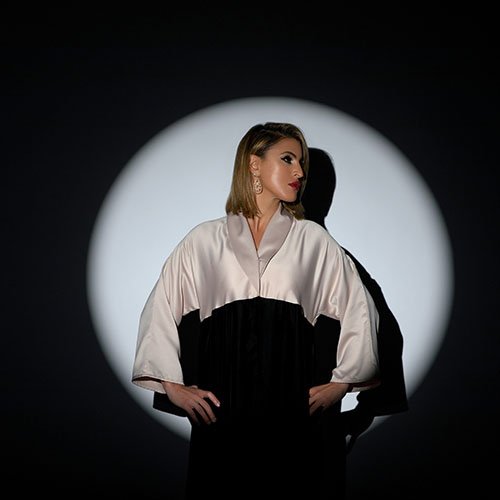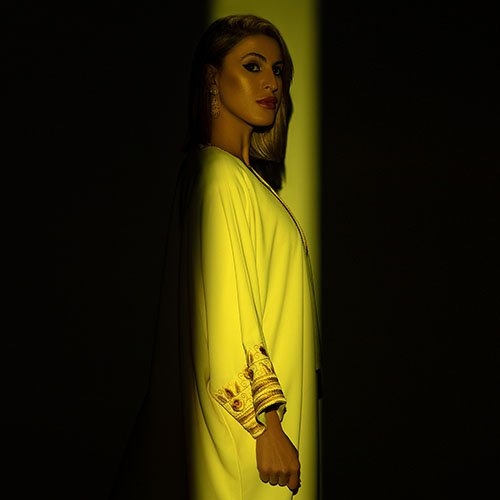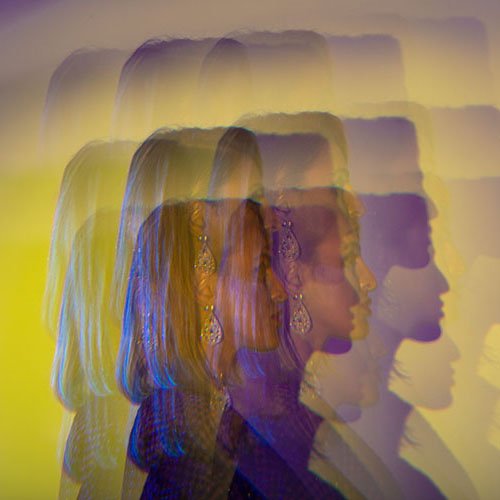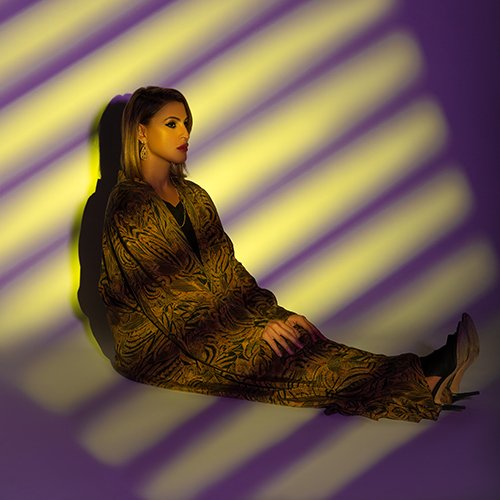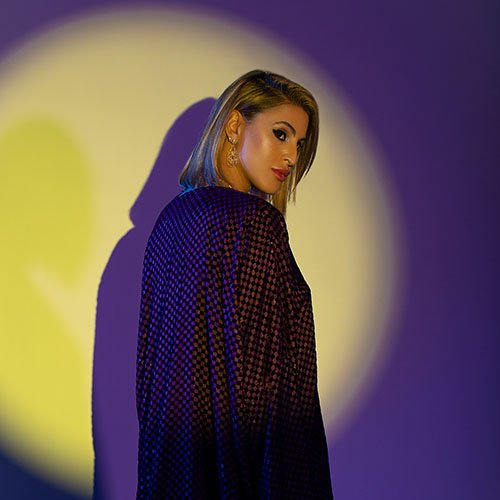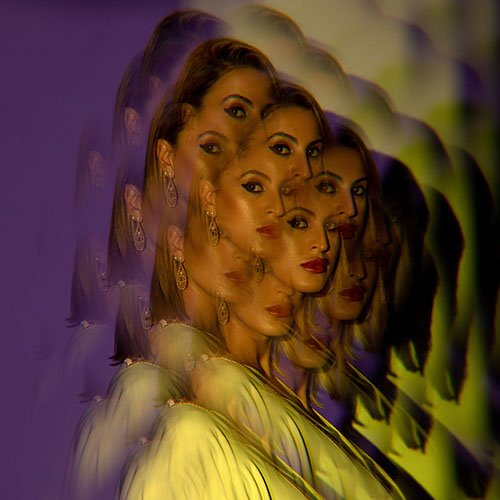Dana Al Fardan: Exporting the Richness of the Arab Heritage
I couldn’t imagine cultivating an honest relationship with my daughter if I was denying this huge part of who I was: a musician.”
Loyalty. If there’s one word that can best describe Dana Al Fardan, it’s loyalty: She is loyal to herself, to who she really is and who she deeply wants to be; loyal to her roots and her Arab heritage, singing in a contemporary manner the stories of Gibran, Rumi or Dido, a queen of Carthage, and humanizing their tales; loyal to her education, to how she was raised to be an independent woman who always “listens to her inner voice” and who doesn’t hesitate before helping those in need, as she did with Gaza in 2019 with the Qatar Red Crescent Society and UNRWA.
Dana Al Fardan wears many hats: The self-taught musician, who has degrees in International Relations and Gemmology, is known for being the first female Qatari contemporary composer, singer and songwriter, for being the first Qatari woman to sing in English, and for being the cultural ambassador for the Qatari Philharmonic Orchestra. Her first album, “Paint”, was released in 2013, and her orchestral LP “Sandstorm” landed in 2017. In 2018, she presented her sold out West End musical “Broken Wings” in London, it was a musical adaptation of Gibran Khalil Gibran’s poetic novel, originally published in 1912. “Broken Wings” was also showcased in 2019 at the Beiteddine Festival in Lebanon and in 2020 at the Dubai Opera House. In 2021, she created “Rumi”, a collaboration with Nadim Naaman that was recorded in London and Doha through the Covid-19 pandemic.
Most of all, Dana Al Fardan just knows what she’s talking about. And here’s the proof.
What happened in 2012 for you to decide to dive into music? What was the trigger, was it your pregnancy, something else, or is everything about timing?
It was definitely my pregnancy. The second I found out I was having a girl, I understood that in order for me to lead by example, I had to live my most authentic life, I had to be true to myself. I couldn’t imagine cultivating an honest relationship with my daughter if I was denying this huge part of who I was: A musician.
What is one thing you will always remember while writing “Paint”, your first album?
I will always remember how organic and fluid the process was. I wrote it while I was pregnant, so I feel the work was basically cultivating itself, because it came from a very real and honest place.
What would you say to Khalil Gibran if you were given the opportunity to spend five minutes with him? And to Rumi?
I would ask Gibran about his stay in Paris, when he was sponsored by his longtime patron, friend and editor Mary Haskell to learn more about art. He worked in the same space as Auguste Rodin – that trip must have had a profound impact on his intellectual and artistic development. Also, I would really want to ask Rumi, who was living in Persia then spent the rest of his life in Konya: Persian or Turkish cuisine?
Which story do you still dream of telling – and therefore singing?
It’s very difficult to pinpoint one story… We come from a very diverse and rich cultural heritage, there are many universal stories that resonate with humanity as a whole. The next story I will be telling is about Dido, queen of Carthage, also known as Elissar. She was a Phoenician princess and a phenomenal figure with an incredible story that translates to a wide variety of audience.
How hard is it to build bridges, like you do, between the Arab and the Western worlds? What should be done to change the perception Westerners have of us Arabs? Also, what is the most common misconception about being an Arab?
One of the most common misconceptions is that the Arab world is one big monolithic entity, one space, one perspective, with minimal variety and diversity; Largely consistent with negative broadcasts in the news. As an Arab artist I feel that it is my duty is to export the richness of Arab heritage in the stories that I tell, and to do so in a manner that translates to an international audience without losing, of course, any of the defining features of Arab identity. For example, when I worked on Gibran Khalil Gibran and Rumi’s lives, it was very important for me to humanize these abstract conceptual Middle Eastern figures that are so incredibly universal in their scope and whose work has impacted the lives of pretty much half the globe. It’s important to protect these human stories on a global scale, in a a way that makes them universally accessible.
How is “Young, Arab and Proud Woman” translated in your work? And how can Arab women be more independent and stronger?
All of my work features a distinctive color that is rooted in my Arab heritage – a vast framework that incorporates many different Arab cultures. What has been amazing to do was to explore the different colors coming out of these cultural influences through my work. Also, I feel that all women, not just Arab women, need to develop a practice of listening to their inner voice and cultivating a path that is more consistent with their truth. When we feel like our story is defined by outside forces, we tend to proceed in misalignment with ourselves, in a manner conflicting with our nature, which in turn places some challenges in front of our intellectual and emotional movements. It’s very simply a matter of exercising and empowering the space within you to construct the core of your identity.
What is one Arab tradition you would want to change, and what is the one you adore?
This is interesting. I have no idea what I would want to change, a lot of practices are simply practices. Now one tradition I adore is community: When you live in an Arab country you get to know people very easily, they are warm, there is a sense of community, a family…
What is the Arab dish you could eat every day?
Mouloukhiyeh!
What is your favorite Arabic song, one that is often stuck on repeat in your playlist?
“Khuttar”, by Ilham Al-Madfai.
Um Kulthum or Fairuz?
Fairuz! Immediately! I grew up listening to her and a lot of my memorable moments are activated with her music.
How do you describe your relationship to fashion? Whose creations do you like to wear?
Fashion is about capturing the distinctive and unique components of what makes you you, it’s a choice we make every single day and, most importantly, I feel me when I’m comfortable, I cannot do anything uncomfortable! I love loose, flowing things and Helmut Lang has always been one of my favorite brands. I also love Vince, because it’s super versatile and easy to wear!
Share This Story!
